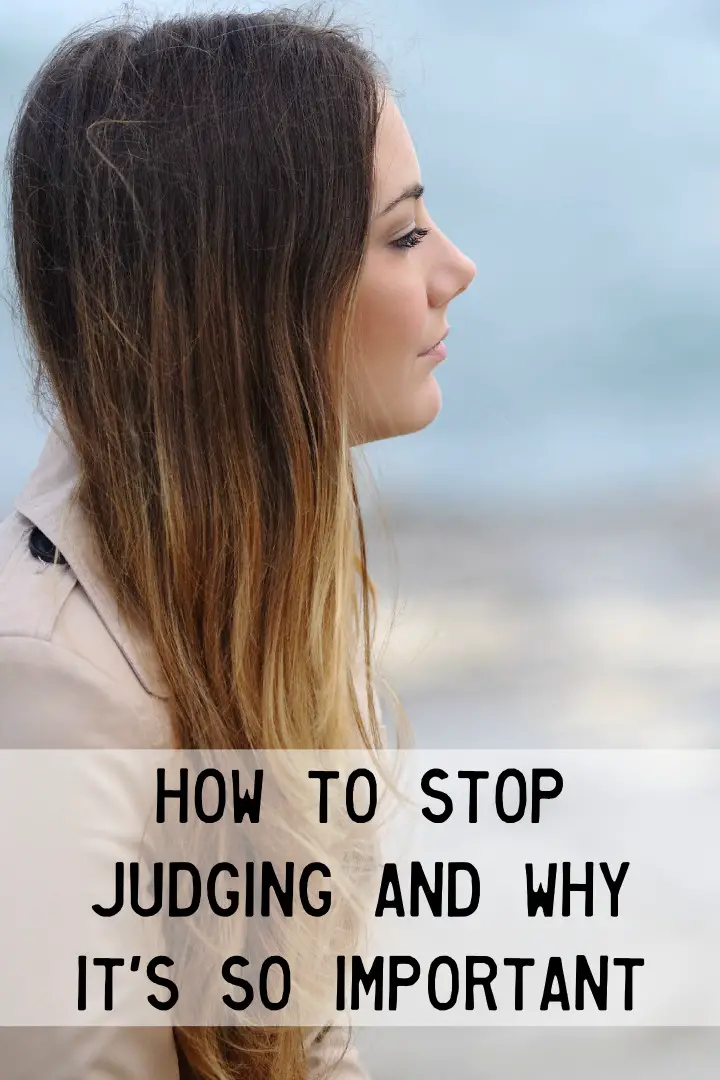How to Stop Judging and Why It’s So Important
No one enjoys beings judged. Sadly though, there is a whole lot of judging going on in our day-to-day lives!
Indeed we are complex creatures and all unique. Each of us engage in distinct situations each day and further we all have different backgrounds, different experiences, different challenges and different triumphs.
As human beings, we naturally and often impose much of our own personal beliefs on others and form expectations based on these personal beliefs. For example, many hold their personal religious views as “right” and have an opinion of those who do not hold the same religious beliefs. Another example could be someone who loves jazz music might have an opinion about someone who loves country music.
 When we judge someone else, it means we form an opinion on the “rightness” or “wrongness” of that person’s choices, behavior, character or beliefs. When we judge, we make a comparison. Judgement is not always detrimental. Judgment can play an important role in decisions we must make to live productively. Judgments are the filters through which we view our world. Most often, however, our judgments are limiting and cause separation between people rather than bringing them together.
When we judge someone else, it means we form an opinion on the “rightness” or “wrongness” of that person’s choices, behavior, character or beliefs. When we judge, we make a comparison. Judgement is not always detrimental. Judgment can play an important role in decisions we must make to live productively. Judgments are the filters through which we view our world. Most often, however, our judgments are limiting and cause separation between people rather than bringing them together.
The reason judging causes separation is that no matter how you slice it, when we judge people what we are saying is that they are wrong and we are right. It could be the style of their hair or their word choices. Often judgments are petty like this. Sometimes they are on bigger issues, such as the way a leader runs an organization, but nonetheless, when we judge, we believe we have superior knowledge or that our way of thinking is better.
The separation is caused and then furthered for a number of reasons. One reason is that, as stated above, it does not feel good being judged (in other words, criticized), so when someone judges another outwardly, it is doing something generally unkind. Next, when people judge, they are often incorrect. There is no way to know all the facts surrounding why anyone does what they do and no one is in a position to make an assessment based on their limited knowledge. They have not “walked a mile in their shoes” so to speak. In fact, they have likely not even walked two foot in their shoes.
Further, people often look for confirmation on their judgement, rounding up others to agree with them. People find comfort in numbers. This only makes it worse. Another way people find confirmation is by ignoring other traits of the person and focusing on the trait we are judging. For example, if one believed that a person was clumsy and frequently stated that they were clumsy, they would likely tend to ignore all the times that the person walked without tripping or did anything with grace and ease. Then, if anything happened that even remotely looked clumsy, the judging person might think or say, “See, you’re so clumsy!”
The result: Separation, distance and a perpetuation of judgment. This is why judgement is so dangerous.
So what is the opposite of being judgmental? Perhaps it could be impartiality. Or it could even be finding compassion or understanding. Acceptance would be the opposite as well.
Back before I made this commitment to lessen my judgment of others, I could not help but feel like I knew something others did not and that there was a better way. My way has always been in choosing love over hate, peace over war, communication over silence, compliments over complaints, etc. Naturally, as we all do, I think my way is the “right” way. I also think many would agree, but the truth is, however, that regardless of what I think, I have no power to change anything but myself. Further, when I would judge others, it does nothing but perpetuate an ugly habit of seeing what, in my opinion, needs to be changed, over what is already so beautiful. It fosters negativity.
Here is an exercise you can implement in your life to lessen your judgements: (1) recognize you are making a judgment, (2) think of something good about the person or the situation. If you can’t think of something good, then alternatively, state that it is beyond your power to make changes or that you don’t know all the information. If it is beyond your control, you can even say to yourself that it’s not your business. See Loving What Is by Byron Katie. It is a life-changing type of book.
You can do this exercise when you find yourself caught up in self-judgment as well.
After you star with this exercise, it was not long to become a less judgmental person. Likewise, when you start this type of work, most people find that after they realize they are judging someone, they can usually relate it back to something they are unhappy about within themselves. Judging others is, so often, just a reflection of our own areas that need improvement.
An awesome result of reducing judgment of others is that we also reduced our judgment of ourselves.
Note that this article is definitely not saying that you should not have opinions and by no means should anyone ever abuse, accept dangerous people or situations or not change detrimental influences in their lives. Certainly a level of “judgment” or “assessment” must always be present to create a peaceful and healthy life for ourselves.
